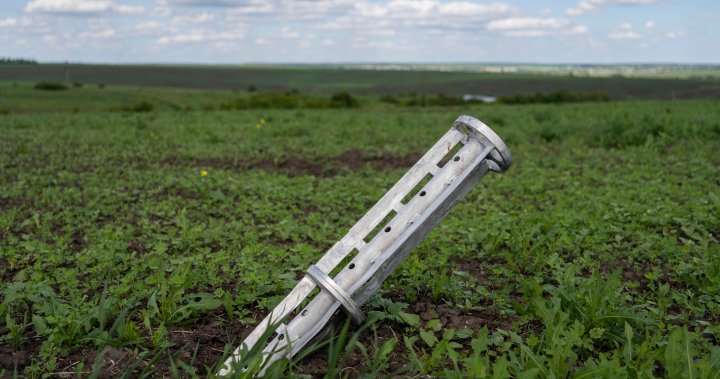The American decision this week to provide cluster munitions to Ukraine is deeply disappointing to former Canadian foreign affairs minister Lloyd Axworthy. Axworthy, who currently serves as World Refugee and Migration Council chair, finds the decision “a little bit insulting.” Axworthy believes that using cluster munitions can have severe consequences, as the smaller explosives released can remain active in the ground for years, posing a risk to civilian lives and causing injuries. He thinks that this legacy will put Ukraine’s own people at risk for years to come.
Canada has a history of opposing cluster munitions, and both Prime Minister Justin Trudeau and Foreign Affairs Minister Melanie Joly have faced questions about the US move. Canada remains steadfast in its financial and military support for Ukraine, as well as its opposition to the use of cluster munitions. Joly mentioned that Canada disagrees with the American position and has expressed this to American officials. However, Canada will continue to provide training, financial resources, weapons, and intelligence to Ukraine.
Trudeau emphasized Canada’s strong stance against the use of cluster munitions, mentioning that Canada led in the banning of these weapons globally. The Ottawa Treaty, also known as the Convention on the Prohibition of the Use, Stockpiling, Production, and Transfer of Anti-Personnel Mines, was created in 1997 with the crucial involvement of Axworthy. Canada became a state party of the Convention on Cluster Munitions in September 2015. However, Ukraine, Russia, and the United States are not parties to this treaty.
David Perry, president of the Canadian Global Affairs Institute, raises questions about why Ukraine wants cluster munitions now. Perry believes that while Canada opposes their use, it can be seen as hypocritical since Ukraine has asked for them due to the lack of conventional artillery shells provided by the West. Perry suggests that Canada could do more to provide the conventional artillery ammunition that Ukraine needs.
Canada has donated artillery canons and shells to Ukraine, along with training on their use. The Canadian government states that it has donated at least 40,000 155mm shells for the artillery canons, valued at over $60 million. Canada has committed $1 billion in military support to Ukraine since February 2022. Last week, the European Union announced a plan to subsidize the production of 155mm ammunition to help Ukraine replenish its stockpiles.
Despite the use of cluster munitions, Perry doubts that Ukraine will lose moral standing among its allies due to the Russian brutality it faces. The situation in Ukraine has intensified since Russia’s invasion in February last year, and the country has been severely contaminated with mines and explosive remnants of war. The UN reports that over 540,000 pieces of unexploded ordnance have been removed from Ukraine, with a World Bank cost estimate of $37 billion to fully demine the country.
Axworthy believes that Canada has a moral responsibility to continue advocating for the prohibition of mines and similar explosives on the battlefield. He sees Canada as a steward of the new international rules of law that prevent governments from willfully using destructive weapons.

